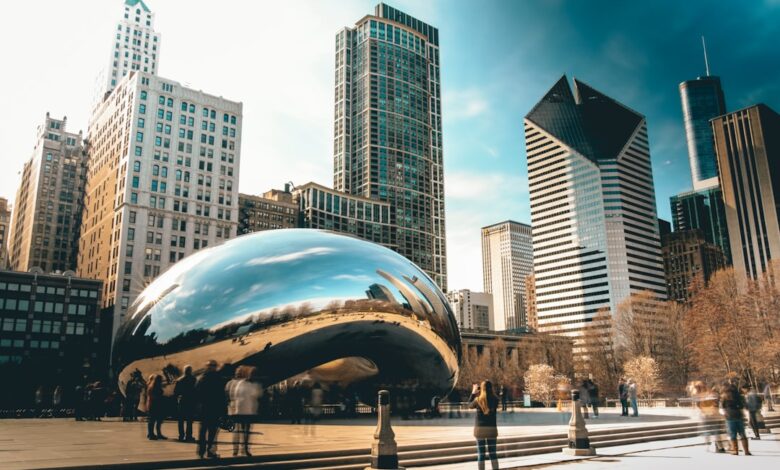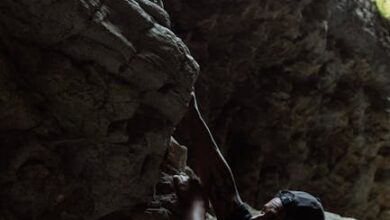Best Gluten Free Restaurants Chicago

Chicago, a city known for its deep-dish pizza and hot dogs, might not seem like the most gluten-free-friendly place. But don’t let that fool you! The Windy City has a fantastic and growing scene of restaurants that cater to those avoiding gluten. As someone who’s been navigating the gluten-free world for years, I’m excited to share some of my favorite spots where you can enjoy delicious food without worrying about a gluten reaction.
Finding safe and tasty gluten-free options can sometimes feel like a treasure hunt. It’s not just about avoiding bread; it’s about cross-contamination, hidden ingredients, and finding restaurants that truly understand the needs of those with Celiac disease or gluten sensitivities. That’s why I’ve put together this guide, highlighting restaurants that not only offer gluten-free menus but also prioritize safety and flavor.
My Top Picks for Gluten-Free Dining in Chicago
Here are some of my go-to restaurants in Chicago for gluten-free eats, covering a variety of cuisines and dining experiences:
Wheat’s End Cafe & Bakery
If you’re looking for a 100% gluten-free haven, Wheat’s End is it. This cafe and bakery offers a wide range of delicious treats, from breads and pastries to sandwiches and pizzas. Everything is made in-house with dedicated gluten-free equipment, so you can rest assured that cross-contamination is not a concern. I highly recommend their cinnamon rolls and pizzas – you won’t believe they’re gluten-free!
Beatrix
Beatrix is a popular spot with several locations throughout Chicago, known for its consistently delicious food and extensive gluten-free options. They clearly mark gluten-free items on their menu and are happy to accommodate dietary restrictions. From salads and grain bowls to burgers and steaks, there’s something for everyone at Beatrix. Their zucchini bread is a must-try!
Wildfire
For a classic American steakhouse experience with gluten-free options, Wildfire is an excellent choice. They have a separate gluten-free menu that includes steaks, seafood, salads, and sides. The staff is knowledgeable about gluten-free diets and can guide you through the menu. It’s a great place for a special occasion or a fancy night out.
The Little Beet Table
This River North gem is dedicated to serving healthy and delicious food that is entirely gluten-free. They focus on fresh, seasonal ingredients and creative flavor combinations. The menu changes regularly, but you can always expect vibrant salads, flavorful entrees, and satisfying sides. It’s a perfect spot for a light lunch or a healthy dinner.
Da Luciano
Craving Italian? Da Luciano offers authentic Italian cuisine with a wide range of gluten-free options. They have gluten-free pasta, pizza crusts, and even some gluten-free desserts. The atmosphere is cozy and inviting, making it a great place for a romantic dinner or a family gathering. Be sure to ask your server about gluten-free choices, as they can often modify dishes to suit your needs.
Handlebar
This vegetarian restaurant in Wicker Park has many gluten-free options clearly marked on its menu. With a cool, casual vibe, it’s a great place to enjoy creative and flavorful vegetarian fare. From tacos and nachos to salads and sandwiches (on gluten-free bread), there’s plenty to choose from. Plus, they have a great selection of craft beers and cocktails.
Tips for Eating Gluten-Free in Chicago Restaurants
Navigating the restaurant scene with dietary restrictions can be tricky. Here are a few tips to make your gluten-free dining experience in Chicago more enjoyable and safe:
- Call ahead: Always call the restaurant ahead of time to inquire about their gluten-free options and procedures for preventing cross-contamination.
- Ask questions: Don’t be afraid to ask your server detailed questions about ingredients and preparation methods.
- Look for dedicated gluten-free menus: Restaurants with dedicated gluten-free menus are generally more knowledgeable and prepared to handle dietary restrictions.
- Read reviews: Check online reviews to see what other gluten-free diners have experienced at the restaurant.
- Be specific: Clearly communicate your needs and concerns to your server and the kitchen staff.
- Avoid fried foods: Unless the restaurant has a dedicated gluten-free fryer, fried foods are likely to be cross-contaminated.
Benefits of Eating Gluten-Free
For individuals with Celiac disease or gluten sensitivity, following a gluten-free diet is essential for managing symptoms and improving overall health. But even if you don’t have a diagnosed condition, you might find some benefits from reducing or eliminating gluten from your diet. These benefits can include:
- Improved digestion: Many people experience digestive issues like bloating, gas, and diarrhea when consuming gluten. Eliminating gluten can help alleviate these symptoms.
- Increased energy levels: Gluten intolerance can lead to fatigue and brain fog. Going gluten-free may improve your energy levels and mental clarity.
- Reduced inflammation: Gluten can contribute to inflammation in the body. A gluten-free diet may help reduce inflammation and associated symptoms.
- Weight management: Some people find that they lose weight when they eliminate gluten from their diet, as they tend to eat fewer processed foods and more whole foods.
Potential Concerns of a Gluten-Free Diet
While a gluten-free diet can be beneficial for some, it’s important to be aware of potential concerns. One of the biggest is nutrient deficiencies. Gluten-free products are not always fortified with the same vitamins and minerals as their gluten-containing counterparts. This is especially true for iron and B vitamins. It’s also important to make sure you’re getting enough fiber, as many gluten-free grains are lower in fiber than wheat-based products. Focus on incorporating naturally gluten-free whole foods like fruits, vegetables, and gluten-free grains like quinoa and brown rice to ensure you get a balanced diet.
Frequently Asked Questions
Is it safe to eat at restaurants that aren’t 100% gluten-free?
It depends on the restaurant and their procedures for preventing cross-contamination. Look for restaurants with dedicated gluten-free menus and knowledgeable staff. Always ask questions about ingredients and preparation methods.
What are some common sources of hidden gluten?
Soy sauce, salad dressings, sauces, soups, and processed meats can often contain hidden gluten. Always read labels carefully and ask your server about ingredients.
How can I tell if a restaurant is taking gluten-free dining seriously?
Look for restaurants that have dedicated gluten-free menus, train their staff on gluten-free diets, and take precautions to prevent cross-contamination. Positive online reviews from other gluten-free diners are also a good sign.
Are gluten-free products always healthier?
Not necessarily. Some gluten-free products are highly processed and contain added sugars and unhealthy fats. Focus on choosing whole, unprocessed gluten-free foods like fruits, vegetables, and gluten-free grains.
Chicago’s gluten-free scene is constantly evolving, with new restaurants and options popping up all the time. By doing your research, asking questions, and communicating your needs, you can enjoy a safe and delicious gluten-free dining experience in the Windy City. Don’t be afraid to explore and try new places – you might just discover your new favorite gluten-free spot!



